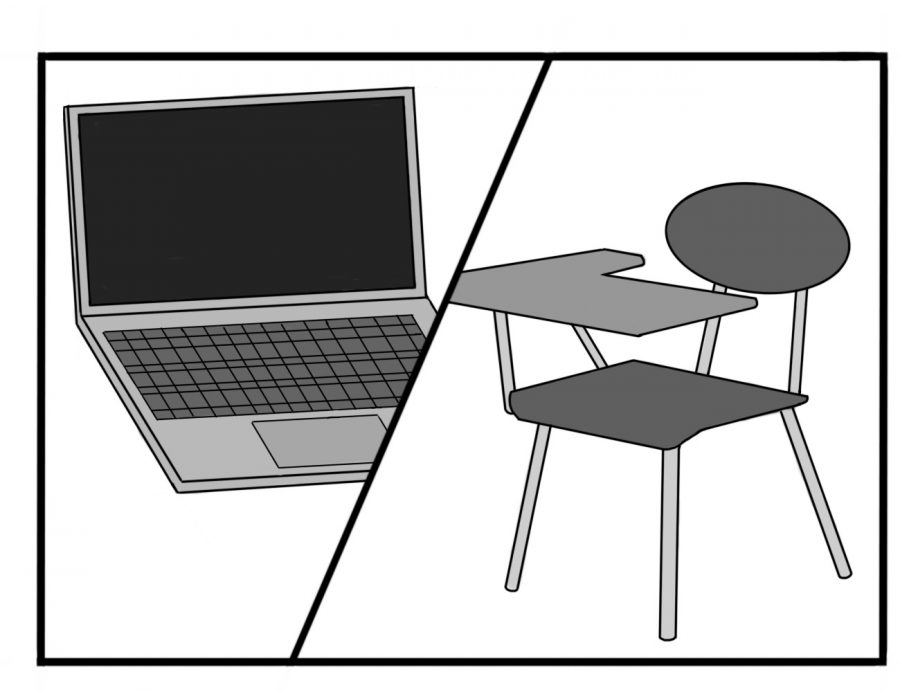Flexible learning options should be the way of the future
While school desks used to be the main furniture associated with learning, these days a computers or lap-tops are essential. In order to make a more inclusive learning environment for the future.
March 3, 2021
This pandemic has brought more pain and hardship than anyone could have ever foreseen. Yet with every dark cloud, and a dark cloud this time has been, comes a silver lining. We at The Clarion believe that this pandemic has allowed for a new wave of learning to become normalized.
Online learning allows students a more flexible and inclusive education experience, and while it may not be for everyone or effective for every class, we believe that forms of online learning should continue even after the COVID-19 pandemic is over.
From a personal standpoint, online learning has allowed me to have a much more flexible schedule. I am able to plan my days more freely by not having to be in a classroom at a certain time. While all my classes are asynchronous, even online classes that do have specific times to meet remotely allow students to save their time and energy by not having to get themselves to class.
Online classes are also much more inclusive. Students who do not have reliable transportation, have health concerns, or would just rather stay home are able to still receive an education that fits their needs.
Remote learning does not come without consequence, as I’m sure many of you have seen or experienced. Online classes often lack personal connections. Without faces to names, it can often be hard for students to gain vital relationships with teachers or peers. This can prove to be a real challenge when needing a letter of recommendation or wanting to make friends.
Online classes also prove to not be as effective for some students. Traditional classroom settings are what many of us are most experienced learning in and the shift to online has made it much more challenging to learn. Not only that, but online classes also often lack an immediate feedback loop as students who take asynchronous classes must email their teachers every time they have a question.
To resolve these issues on both sides of the remote learning debate, The Clarion believes that a good solution to this in the future would be to have online classes fused with in-person classes as much as possible. This could be implemented by setting up a laptop at the back of the room with a video conferencing software like WebEx, Zoom, or Blackboard Ultra Collaborate where students can tune in remotely while the in-person class is happening. This allows students the option to attend virtually and is more inclusive to a variety of situations. We also realize that this option may not be suitable for every class and will have to be judged on a case-by-case basis along with instructor willingness.
While this past year has been ever challenging, it has allowed us a chance to review and improve our systems of education. By giving more classes a virtual option, students will be able to pick the learning style that works best for them, making Madison College a more inclusive place for all.































